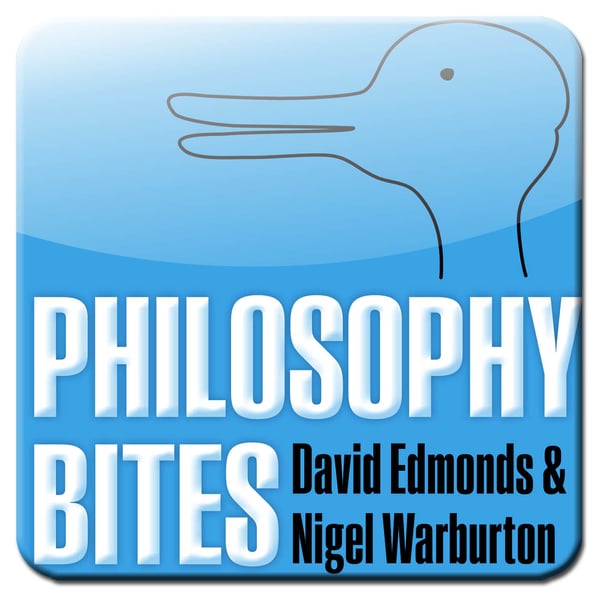Thomas Pink on Free Will
Philosophy Bites
Nigel Warburton
4.6 • 2K Ratings
🗓️ 9 March 2008
⏱️ 18 minutes
🧾️ Download transcript
Summary
Transcript
Click on a timestamp to play from that location
| 0:00.0 | This is philosophy bites with me David Edmonds and me Nigel Warburton. |
| 0:07.0 | Philosophy bites is available at www |
| 0:09.5 | philosophy bites.com. |
| 0:11.0 | At one level the claim that humans have free will seems bizarre. If the physical |
| 0:16.5 | world operates according to iron laws which determine everything that happens, mustn't |
| 0:21.1 | humans be governed by the same laws. |
| 0:23.0 | On the other hand, we all think we're free. |
| 0:26.0 | We take it for granted that it's up to us to choose our actions. |
| 0:30.0 | The issue of free will is one of the most complex in philosophy. |
| 0:34.0 | Some argue that if our actions are causally predetermined, we can't be free. |
| 0:39.0 | Such people are caught incompativists. |
| 0:42.0 | Others, |
| 0:43.3 | say even if our actions are caused |
| 0:45.8 | and determined in advance, we can still be free. |
| 0:49.2 | So which side is right and how can we tell? |
| 0:51.7 | Thomas Pink, a leading expert on free will, has his own solution. |
| 0:56.0 | Tom Pink, welcome to Philosophy Bites. |
| 0:59.0 | Thank you for having me. |
| 1:01.0 | Now the problem we're going to focus on today is free will. That's the traditional |
| 1:04.8 | philosophical problem that's engaged thinkers of all ages. But can we just get clear |
| 1:09.2 | what the problem is? The problem begins when we consider something that's very central to our moral or ethical life. |
| 1:17.0 | And that's blame. We blame ourselves and other people for what they do or what they fail to do. Think about what |
... |
Please login to see the full transcript.
Disclaimer: The podcast and artwork embedded on this page are from Nigel Warburton, and are the property of its owner and not affiliated with or endorsed by Tapesearch.
Generated transcripts are the property of Nigel Warburton and are distributed freely under the Fair Use doctrine. Transcripts generated by Tapesearch are not guaranteed to be accurate.
Copyright © Tapesearch 2025.

